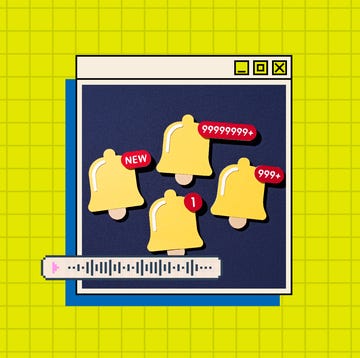You may not be able to remember the details of blowing out your candles at your first birthday party, but that doesn’t mean you lacked the ability to store that event in your memory bank. In fact, a new study in Science shows infants as young as 12 months are able to form memories for specific events, at least for a few minutes. These findings challenge the long-standing belief a baby’s brain is too immature to create any lasting memories.
The truth is, babies and toddlers do have the ability to grasp and recall certain things. “It's not that we don't have any memories from that period, in fact, in infancy and early life is when we learn our language, how to walk and when we learn the names of objects and form social relationships,” says Nick Turk-Browne, Ph.D., a cognitive neuroscientist, professor of psychology at Yale University and the study’s senior author. “One of the deepest mysteries in neuroscience is what happens during that period where we learn so much and yet remember so little?”
Lead study author Tristan Yates, Ph.D., a postdoctoral research scientist in the department of psychology at Columbia University in New York City agrees. “Although it’s been known for decades that babies are capable of forming some types of memories, until now we didn’t know how they form episodic memories (those specific events that happen in a particular space and time) and whether they used the same brain systems as adults.”
How memories are formed
Before digging into the study, it may help to know a little about how our memory works in the first place. When we take in information, it prompts specific groups of neurons, or brain cells, to activate. That neural activity propels the brain to gather, organize and keep the information for later retrieval.
While there are different parts of the brain involved in memory, the hippocampus is the area responsible for creating new memories, says Yates. “Over time, the hippocampus converts these memories into more permanent ones in other areas of the brain.”
Previously, experts thought a baby’s hippocampus isn’t developed enough to hold on to memories. So this group of scientists decided to examine and measure little ones’ brain activity when they viewed a series of images, to figure out what they may remember.
What the study found
The research team looked at 26 babies ranging in age from 4 months to 2 years old. To assess their memory capabilities, each baby was shown a series of images, such as a dog toy, a canyon, waterfall or a woman’s face, while lying in a functional magnetic resonance imaging (fMRI) machine. Each image would pop up on a green kaleidoscope patterned background (to keep their attention) for two seconds, then go on to another picture. Some images were shown again at least a minute later, alongside a never-before-seen image from the same category, such as two toys. In order to minimize wiggling and make sure the babies were alert and calm, a parent was present.
Once the testing was over, the team discovered the greater hippocampal activity a baby had when they looked at a new image the first time, the longer they lingered on it when they saw it a second time. The results suggest since babies tend to spend more time looking at familiar images, even when they’ve only seen them briefly, and then looked longer on the repeat view, they were remembering what they saw before.
The tests also showed the strongest encoding activity took place in the posterior part of the hippocampus (closer to the back of the head), the same part that’s most associated with episodic memory in grownups. According to the study, activity for forming new memories was strongest among those babies older than 12 months.
These findings shed some new light on a baby’s ability to form a memory and at what age. “Historically, we thought a baby doesn't have the ability to create episodic memories because most people don't report memories before age three,” says Yates. “However, our study suggests that episodic memories can be formed in early life. Whether they can be more long-lasting is something we’re exploring further.”
So why can’t we remember things that happened when we were babies?
As for why we can’t remember those memories formed in infancy, there are a few possibilities. One can be chalked up to these encoded memories occurring before we have the verbal or thinking skills to understand them compared to when you’re four to six years old, a time when episodic memories get clearer.
As an adult, another reason you may not be able to remember that far back is because “those memories aren’t being stored correctly and getting lost along the way, or they’re there but we just can’t access or retrieve them,” Yates says. “Now these are questions we can start to ask and hopefully come up with some answers.”













